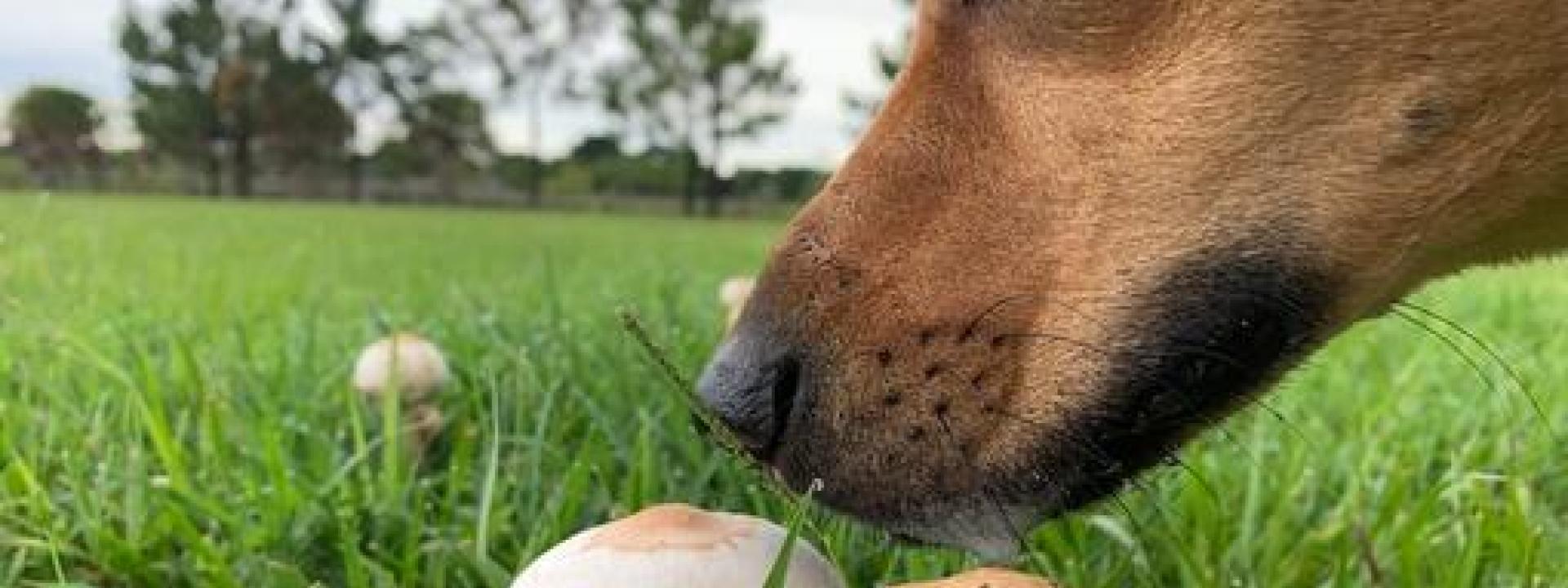
Mushroom Ingestion
Mushroom ingestion by animals is dangerous causing toxicities that can progress from severe to deadly in a matter of hours.
The recent rains all over the greater San Francisco Bay Area in the past couple of weeks have actually caused mushrooms to sprout and pet owners are cautioned to ensure their animals do not inadvertently consume any mushrooms. While mushrooms usually sprout during warm wet weather rains in the spring or fall, we seem to be having mushrooms growing over the past few weeks due to the increased rains across northern California.
If your animal ingests any mushrooms or you suspect they may have ingested mushrooms, seek veterinary care immediately.
The best information is found on the ASPCA Poison Control regarding mushroom ingestion in animals.
Mushroom Toxicity
A number of mushroom species are toxic to animals (and people too). The ones of greatest concern can cause organ failure (e.g., liver and kidney) or gastrointestinal distress. There are also mushrooms that can be toxic to the neurologic system.
If your animal has inadvertently ingested mushrooms, or you suspect the possibility that they may have, it is vital that you contact the ASPCA Poison Control Center and seek veterinary emergency care immediately.
High Risk of Liver Failure
There are species of mushrooms that can cause fulminating liver failure. These tend to be the death cap or death angel (Amanita phalloides) mushrooms, but there may be others. The Amanitins are ubiquitous across North America including the Pacific States. This species may vary geographically so any mushroom exposure should be evaluated by a veterinarian to ensure your pet's well-being.
The Amanitins cause acute liver failure and the clinical signs associated with toxicity may not occur immediately, and not be evident for 6-12 hours, giving owners a false sense of security. If assessment and treatment for mushroom ingestion is not performed immediately, and by the time your pet may show clinical signs, they may have organ changes that progress to liver failure, and possibly death, despite treatment in severely toxic cases.
Other Mushroom Affects: Gastrointestinal Issues
Many mushroom species can cause gastrointestinal signs such as vomiting and diarrhea. These clinical signs may range from mild to severe. However, as with the liver-toxic mushrooms, do not wait for clinical signs to appear if you suspect, or are certain, that your animal ingested mushrooms. Be proactive and call the ASPCA Poison Control hotline and seek veterinary care immediately for your pet.
Some of these mushroom species will also cause heart rate changes and increased salivation together with a set of clinical signs referred to as SLUDDE: Classic salivation, lacrimation (tear production), urination, defecation, gastrointestinal distress, and emesis (vomiting).
Treatment For Mushroom Ingestion and Toxicity
As we stated in this blog, mushroom ingestion can be quite serious, and life-threatening, with a small window of time to obtain treatment to manage the adverse and lethal outcome(s) of mushroom toxicity.
The rapid onset of adverse effects on organs warrants immediate veterinary intervention. It may be helpful to take a picture of the mushroom ingested but identification of mushrooms requires experts, mycologists, and immediate identification may not be possible. Having a veterinarian treat your pet with decontamination and symptomatic care in the face of mushroom intoxication is of greater importance than identifying the mushroom they may have, or did, ingest.
If you have questions and would like to reach out to us, you can call us directly at 650-535-3557 or you can email us at clinic@northpenvet.com.
